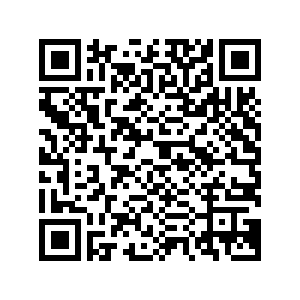by Xinhua writer Gao Wencheng
BEIJING, Jan. 31 (Xinhua) -- The escalating political polarization in the United States has given rise to a dystopian narrative, as portrayed in the upcoming film "Civil War," in which 19 U.S. states, led by Texas and California, secede from the country, and partisan extremist militias regularly commit political violence.
While such talk of an "American split" may sound far-fetched to some, Texas's recent border standoff with the federal government indicates that it is not entirely implausible.
In this election year, analysts globally perceive the U.S. presidential election as a significant source of risk. As the electoral battle spirals, political and social divisions deepen, aggravating the symptoms of the "U.S. Election Syndrome." The ongoing standoff over the immigration crisis at the southern border marks a new development in this syndrome, with a member of Congress even proposing a "national divorce" between red and blue states.
The "U.S. Election Syndrome" inevitably brings to mind the violent episode that erupted three years ago, when thousands of Americans stormed the Capitol, attempting to prevent the confirmation of the newly elected president. Protesters breached the building, tear gas clouded the air, lawmakers fled wearing gas masks, and a tense standoff unfolded, leaving the Stars and Stripes torn in pieces on the ground.
Three years after the Jan. 6 insurrection at the U.S. Capitol, and with the 2024 presidential election merely months away, a recent CBS/YouGov poll revealed that nearly a majority of American adults anticipate violence arising from future presidential election defeats. Additionally, more than two-thirds of respondents believe that U.S. democracy is under threat.
Their concerns are not unwarranted. U.S. election campaigns are ridden with attacks, arguments, biases, and rumors -- a longstanding tradition where both parties strive to hinder each other.
The Texas crisis exemplifies the exploitation of immigration as a tool by Republican-controlled states to undermine the Democratic Party's electoral prospects. Both parties leverage such issues as immigration, climate change, and gun control to push for greater polarization and confrontation, thereby creating a growing rift between the two camps and expanding their respective political base.
This ideological divide permeates every facet of society, amplifying disagreements within families, communities, and social circles, significantly constraining the space for communication and dialogue between opposing perspectives.
In some instances, voters cast their ballots not in support of specific policies or ideologies but as a means of countering the opposing side. Disgruntled supporters of the losing side may resort to violence to vent their grievances.
Adopting a pessimistic outlook, the Brookings Institution suggests that the nation "seems destined to grapple with extreme economic, territorial, and political divides," with both parties talking past each other on crucial economic and social issues.
The harsh reality of "America versus itself" has left the public disillusioned with the government's functioning. Whichever party assumes power, effective governance amid extreme division proves challenging.
As highlighted in a Politico article, numerous foreign diplomats in Washington are aghast that "so many U.S. leaders let their zeal for partisan politics prevent the basic functions of government." They worry that today's U.S. political divisions could have a lasting impact on an increasingly interconnected world.
The U.S. ruling party tends to overhaul the political legacy of its predecessor or reject the policy proposals of the opposition. Under widely-criticized "pendulum democracy," U.S. domestic and foreign policies have been oscillating, depleting the nation's finances and undermining U.S. credibility on the global stage. Capricious exits from and re-entry into international organizations, such as UNESCO, have also impaired the efficiency of these institutions.
Eurasia Group, a U.S. political risk consulting firm, also perceives "the United States versus itself" as the foremost challenge in its "Top risks for 2024" report. The report warns that the upcoming U.S. presidential election will exacerbate the country's political dysfunction, testing American democracy to a degree unseen in 150 years.
The great irony, as argued by Newsweek magazine, may be that "the only force strong enough to bring down the United States, surely the most potent political entity in human history, is itself."
This serves as a crucial reminder to American politicians that, rather than searching for external "imaginary enemies" and casting others as "risks," prioritizing internal risk management is imperative.
After all, no nation is in the mood for bearing the brunt of risks imposed by botched U.S. political strife. ■
